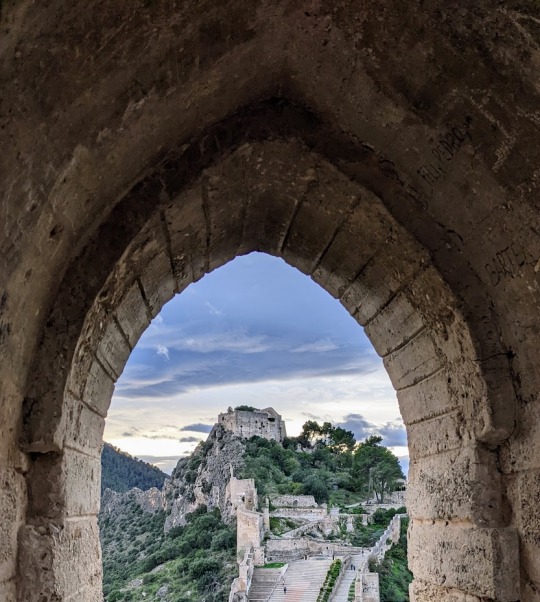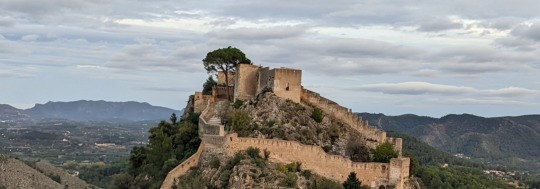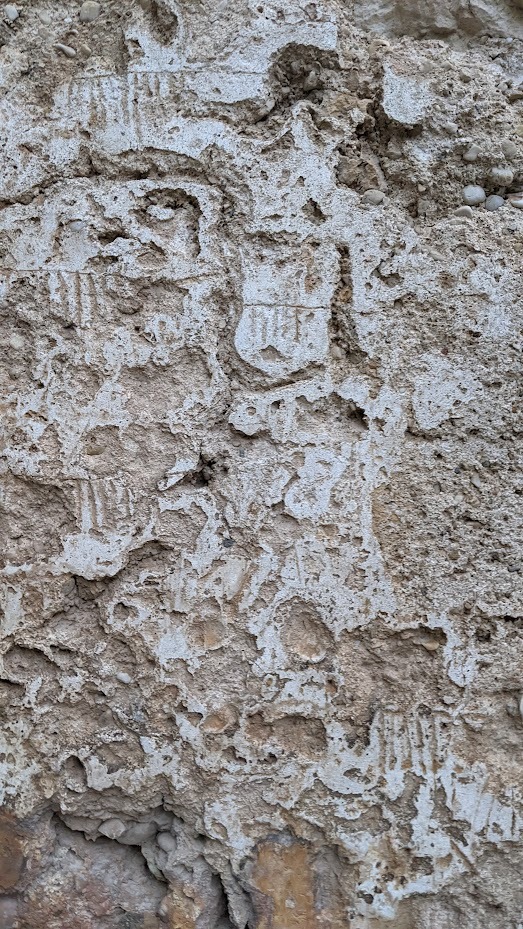#saguntum
Photo

Armée Carthaginoise
Les armées de Carthage permirent à la ville de forger l'empire le plus puissant de la Méditerranée occidentale du VIe au IIIe siècle avant notre ère. Bien que nation de tradition maritime dotée d'une puissante marine, Carthage dut, par nécessité, employer une armée de terre pour faire valoir ses revendications territoriales et affronter ses ennemis. Adoptant les armes et les tactiques des royaumes hellénistiques, Carthage eut également recours aux armées mercenaires de ses alliés et des cités-États qui lui étaient soumises. Elle remporta des succès militaires en Afrique, en Sicile, en Espagne et en Italie, où les armées étaient dirigées par des commandants célèbres tels que Hamilcar Barca et Hannibal. La domination militaire de Carthage finit toutefois par être contestée et surpassée par la montée en puissance de Rome et, après la défaite de la deuxième guerre punique (218-201 av. J.-C.), les jours de Carthage en tant que puissance régionale prirent fin.
Lire la suite...
2 notes
·
View notes
Text
@pyrrhiqe
Marcus doesn't really want to be here, even though he knows he ought to be. Whatever it is Varro is saying to Hannibal right now, well, Marcus feels as if it'll mean nothing, in the end. He can feel it brewing, another war, another massive loss of life, another way to show that, ultimately, Rome is superior to any other civilization at the moment. However, he is still exhausted from the first war with Carthage. Need there be another right this second? How many times must he fight Carthage to prove a point?
He sighs a little, hardly listening to the conversation at hand. Something about leaving Saguntum and of course Hannibal would never do that, etc, etc. Marcus glances over at Hannibal, blinks when he sees he's looking right back at him. He scowls a little, looks back at the wall for a moment, glances back over..it's like a little game, isn't it?
Varro abruptly stands, then, and Marcus steps back to let him pass, and he goes to walk out after him, but he hears Hannibal tell him to stop. He sighs. "What? Is there something you're absolutely burning to talk to me about that you couldn't say to Varro? You best make it quick."
22 notes
·
View notes
Video
Untimely - Mare Nostrum (Explored) by doughty.landscapes
Via Flickr:
The Carthaginians besieged the Roman empire at the start of the second Punic war in this territory: Saguntum. © Edwin Doughty 2020 - No Unauthorised Use Please. For more information: Edwin Doughty - Galleries and prints Follow me on Instagram: www.instagram.com/edwin.doughty/
0 notes
Text
Rome the Unconquerable (pt4)
the first Punic war (264 BCE) was one of Rome's first real reality checks about the power of their newest enemies and the only thing standing in the way of controlling modern day Italy (mostly). the romans first move was to attack Messana (one of the major cities in Sicily) to force the Carthaginians to withdraw, and 4 year later would ultimately fail to take Sicily but could now attack Corsica, which they did manage to take, eventually in 241 the romans managed to establish dominance in the shipping lanes between Carthage and Sicily, making it's fall an inevitability. i've skipped over much of the detail around this conflict, as it isn't really the meat of what i wanted to get into, but it does set up our rivalry quite nicely. the Carthaginians were incensed that they had been driven out of islands that were rightfully theirs, and the romans could not believe that they had come as close as they had to losing everything, creating a bitter hatred and a need to crush Carthage once and for all to establish dominance over a world that was theirs.
The second and third Punic Wars is what i primarily want to talk about, as they fit my somewhat character centric writing style and also i just like them more in honesty.
The second Punic war started in 218 BCE and quickly became much more of a problem when Hannibal Barca sacked the Iberian (but roman supporting) city of Saguntum. he used this new route to take tens of thousands of men and war elephants over the alps into Rome threatening the eternal city (Rome itself), a city no longer really equipped to defend itself as it hadn't been assaulted in over a century at this point. it was here the romans also had their worst defeat up until that point at the battle of Cannae. Hannibal fielded around 50,000 troops and Rome almost 87,000. on the day of the battle, Hannibal would lose anywhere from 5700-8000 men, and rome would lose anywhere from 48,000-70,000 men, even ignoring the casualties taken as prisoners or wounded. this is a truly huge number of men and Carthage offered peace terms after this. Once again the romans rejected these terms out of hand; raised more legions, locked shields and set to weather the storm. this was, of course until a young man by the name of Scipio emerged as a figure in Iberia, taking back the entire peninsula in a series of quick and stunning upsets. after this he returned to Rome and elected Consul, whereupon he prepared a proposal to the senate. this effectively boiled down to demanding as many legions as it was humanly possible to raise. the plan was, he would take these exceptionally angry men to Africa, burn Carthage to the ground, and wash clean from Rome the stain of dishonour with the blood of the Punics. the senate, being somewhat sane, said no. but Scipo decided he was going to do it anyway, got some rich guys to pay for an army and executed his plan. the hope was that Hannibal would quit Rome and attempt to save his home, but this was of course a massive risk as it exposed Rome directly to attack. some of Scipio's zeal could be explained that as he was a much younger man than Hannibal he had spent almost his entire life suffering from Hannibal's great war, as his father and uncle had been killed by an army commanded by Hannibal's brother.
This absolutely wild assumption, somehow, turned out to be exactly correct, and these two legends, one forged by the war the other had started, met at last at Zama
Livy wrote in book 30 of his histories, "Keeping their armed men at the same distance the generals, each attended by one interpreter, met, being not only the greatest of their own age, but equal to any of the kings or commanders of all nations in all history before their time. For a moment they remained silent, looking at each other and almost dumbfounded by mutual admiration." Scipio would do the impossible again as he had in iberia, and win this battle with an army anywhere from 10,000-20,000 men smaller than Hannibal's 40-50,000 in one of the greatest and most decisive military victories Rome had ever had. part of the success here was to do, of course with the tactical genius Scipio displayed, but also his complete willingness to engage the old men; the venerable triarii, veterans all of countless battlefields in combat; and not as a last resort but as a troop for his front line. this, of course robbed the romans of their habitual swapping of tired for fresh troops, but i imagine the triarii, some of whom were veterans of Cannae, were more than willing to get their spears bloody. Scipio's victories earned him the cognomen (nickname) 'africanus' or conqueror of Africa
This Catapulted Rome into a position of unchallenged superiority over Carthage, and also to be becoming the ultimate power of the Mediterranean
The war caused Carthage to have to get rid of most of their territories and navy, but also cost Scipio everything, as he was later accused of bribery. eventually he retired to a villa away from Rome having become tired of the endless bickering. he demanded that he not be buried in Rome, the city that he unquestionably saved, saying "ungrateful fatherland, you won't even have my bones." Hannibal went into exile and was hunted by Rome for the rest of his life, "let us now assuage the Romans of their fears, with the death of a feeble old man," he died, broken and alone, having doomed his city to a slow death.
Thank you all for reading, in part 5 we will cover the third Punic war (yes another) and it's aftermath.
May your edges stay sharp, and your points true
Even though it may feel more hollow this time, let the air ring with loud acclaim. Roma Invicta!
ps. Sword review should be in the next few days, but here’s a teaser, byeeeee

#ancient rome#swords#academia#lord of the rings#sword#adventure#fencing#sword fighting#warrior#armor#legionary#text post
1 note
·
View note
Text
made this while trying to figure out how to perform this one instrument live/engineer stable loops for this other project of mine. hope you like it!
also i mostly just post my scraps/outtakes of stuff i'm actually working on to tumblr, so if you ever want to reuse or repurpose anything i post here, just lmk and i'll send you the actual wav files
0 notes
Text
Hannibal kimdir? Hannibal Barca kimdir?
Hannibal Barca, MÖ 221 yılında Kartaca’nın İspanya ordusunun komutanı oldu. MÖ 221’den MÖ 219’a kadar Ebro’nun batısındaki topluluklar üzerine hâkimiyet kurdu. Hannibal, I. Pön Savaşı’nın ardından Roma ile ikinci bir savaşın kaçınılmaz olduğunu biliyordu ve ilk darbeyi kendisi vurmak istiyordu.
İspanya’daki konumunu sağlamlaştırdıktan sonra MÖ 219’da Roma’nın müttefiki olan Saguntum şehrini ele…
View On WordPress
0 notes
Photo



Xativa Castle, allegedly where Hannibal plotted his campaign for the seige of the Roman city of Saguntum. The site consists of two castles that sit about 310 meters above the modern-day city of Xativa.
1 note
·
View note
Photo

Hannibal Barca (247 BC between 183 and 181 BC) was a Carthaginian general and statesman who is widely considered one of the greatest military commanders in history. His father, Hamilcar Barca, was a leading Carthaginian commander during the First Punic War (264–241 BC). His younger brothers were Mago and Hasdrubal, and he was brother-in-law to Hasdrubal the Fair; all commanded Carthaginian armies. He lived during a period of great tension in the western Mediterranean Basin, triggered by the emergence of the Roman Republic as a great power after it had established its supremacy over Italy. Rome had won the First Punic War, and revanchism prevailed in Carthage, symbolized by the alleged pledge that Hannibal made to his father never to be a friend of Rome. The Second Punic War broke out on November 15, 218 after his attack on Saguntum, an ally of Rome in Hispania. He then made his famous military exploit of carrying the war to Italy by crossing the Alps with his African elephants. In his first few years in Italy, he won a succession of dramatic victories at the Trebia, Lake Trasimene, and Cannae. He distinguished himself for his ability to determine his and his opponent's respective strengths and weaknesses, and to plan battles accordingly. His well-planned strategies allowed him to conquer several Italian cities allied with Rome. He occupied most of southern Italy for 15 years, but could not win a decisive victory, as the Romans led by Fabius Maximus avoided confrontation with him, instead of waging a war of attrition. A counter-invasion of North Africa led by Scipio Africanus forced him to return to Carthage. Scipio had studied his tactics and devised some of his own, and he defeated Rome's nemesis at the Battle of Zama, having driven his brother Hasdrubal out of the Iberian Peninsula. #africanhistory365 #africanexcellence https://www.instagram.com/p/Ck-1IRaLWAu/?igshid=NGJjMDIxMWI=
1 note
·
View note
Text
Btw it’s important to note that I will ALWAYS support junos actions shes my favourite girlboss you go girl summon tisiphone to drive the people of Saguntum to madness and ruin
#queen of doing no wrong!!!!#they hate to see a girlboss winning#live from the alps#a belated note cuz I was reading in class
1 note
·
View note
Photo

Scipio Africanus the Elder
Scipio Africanus Major (l. 236-183 BCE) received his epithet due to his military victories in Africa which won the Second Punic War for Rome against Carthage. He is also known as Scipio the Elder. He was born Publius Cornelius Scipio in 236 BCE. His family was of Etruscan descent and of the Patri...
Continue reading...
#Battle_of_the_Metaurus#Empuries#hannibal#Hasdrubal_Barca#Punic_Wars#Roman_Republic#Roman_Warfare#Saguntum#Scipio_Africanus_the_Elder#Second_Punic_War
34 notes
·
View notes
Photo

Scipion l'Africain
Scipio Africanus Major (alias Scipion l'Africain 236-183 av. JC) reçut son épithète en raison de ses victoires militaires en Afrique qui permirent à Rome de remporter la deuxième guerre punique contre Carthage. Il est également connu sous le nom de Scipion l'Ancien. Il naquit Publius Cornelius Scipio en 236 av. JC. Sa famille était d'origine étrusque et appartenait à la classe supérieure patricienne.
Lire la suite...
2 notes
·
View notes
Photo

Escipión el Africano
Escipión el Africano (236-183 a.C.) recibió este epíteto por sus victorias militares en África, gracias a las cuales Roma derrotó a Cartago en la segunda guerra púnica. Nació en el 236 a.C. con el nombre de Publio Cornelio Escipión. Pertenecía a una familia de ascendencia etrusca de la clase alta de los patricios.
Leer más...
1 note
·
View note
Text
every city is every other city there is no unhaunted city and even if there WAS it would be haunted by the absence of another city to haunt it
#this post is about troy/rome/carthage/buthrotum/saguntum/tirion/gondolin etc#oh also athens/thebes/mycenae/troy again/rome again/alexandria etc#every day my collection of doomed blorbopoleis grows#beeps
459 notes
·
View notes
Photo

We reached the Saguntum ruins, where Hannibal passed during the Second Punic War... 🤠😎🥵 #romanruins #saguntoturismo #saguntoandvalencia #comunidadvaleciana #españa #arqueologiaromana #castillo #roca #spain🇪🇸 #trekking #findtheruins #playwitheruins #romanarquitecture #lanscape #acropoli #valencia #sagunto #saguntum #citybreak #peninsulaiberica (presso Castillo de Sagunto) https://www.instagram.com/p/CCqUUTtKmVZ/?igshid=1t65kjakzfh3c
#romanruins#saguntoturismo#saguntoandvalencia#comunidadvaleciana#españa#arqueologiaromana#castillo#roca#spain🇪🇸#trekking#findtheruins#playwitheruins#romanarquitecture#lanscape#acropoli#valencia#sagunto#saguntum#citybreak#peninsulaiberica
0 notes
Note
FELICEM DIEM NATALEM!!!!!! 🎉🐘🎉🐘🎉🐘🎉🐘🎉🐘🎉🐘
THAMKS TATELING!!!
4 notes
·
View notes
Text
Lmao if you think that Hannibal’s invasion of Saguntum violated the Treaty of Lutatius unfollow me right now
#saguntum was SOUTH of the ebro river#the romans were the ones who broke the fucking treaty with the annexation of corsica
4 notes
·
View notes
